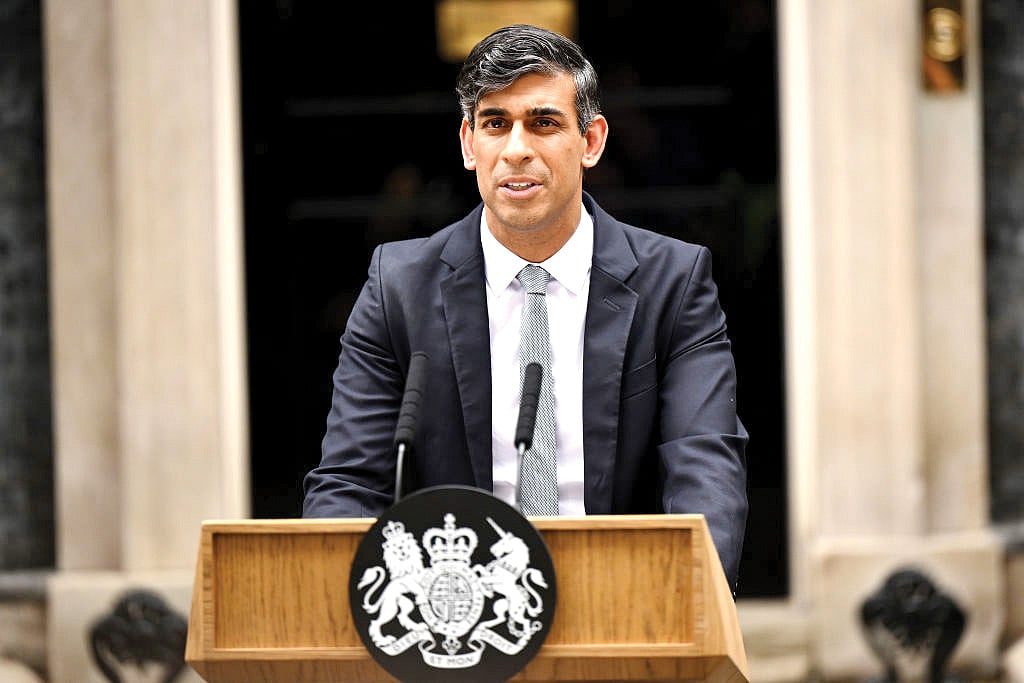London Diary: British Council in throes of financial crisis
According to chief executive Scott McDonald, if the government doesn’t bail it out, the Council faces “financial peril”. Its outstanding debt is a staggering £197 million

British Council—once the most recognisable face of British ‘soft power’—is broke and has started selling off its assets, including its Englishassessment business in India.
Other economy measures to keep the show going include shedding staff, disposing of its properties worldwide and letting go of rare artworks in its possession.
According to chief executive Scott McDonald, if the government doesn’t bail it out, the Council faces “financial peril”. Its outstanding debt is a staggering £197 million because of a pandemic-era emergency loan from the Foreign Office of £250 million with interest charged at £14 million a year.
Nearly 1,500 staff have been sacked and bosses are eyeing up which of the organisation’s foreign outposts can be put on the market. “Everything the British Council has, which is not that much anymore, we are exploring selling,” said McDonald.
This includes half of the 40 buildings it owns around the world, with a total value of about £126 million, and other standalone assets. Set up in 1934, the 91-year-old BC, as it is popularly known, promotes British language and culture abroad.
Last year, it reached nearly 600 million people. Almost 85 per cent of its income comes through commercial channels, such as teaching English and running examinations; the rest comes from the government.
Its official statement read: ‘A British Council that is in retreat is a blow to the UK in the competition for influence on the world stage. We are asking the government to act urgently to relieve the burden of our pandemic loan and the pressures of a decade of declining grant funding to ensure that we can continue with our mission.’
Well, is the end of ‘cultural colonialism’ in sight, then?
---
Bad news for foreign students
There’s bad news for Indian students planning to come to the UK with the hope of settling down after graduation by getting hold of any old job.
As part of the plan to cut Britain’s record levels of immigration driven by an increase in non-EU citizens—728,000 in the 12 months up to June 2024—a major tweak to student visa rules mandates that foreign graduates would henceforth be forced to leave the UK unless they get a graduate-level job.
A graduate-level salary is defined as between £36,000 and £40,000 a year.
Jobs paying this sort of pay check require highlevel skills that are not available locally. The government is considering setting a higher bar in a white paper to be published soon.
Currently, overseas students can stay in the UK for up to two years after university even if they do not have a job. They can also stay on if they find a lower-skilled job and switch to a work visa. Indians accounted for more than 40 per cent of last year’s graduate student visas, which are open to any international student who successfully finishes their course of study, including a nine-month master’s degree.

Illegal immigration ‘totally unacceptable’
A report claims that as many as 585,000 illegal migrants are living in London—that’s one in 12 residents. Shadow home secretary Chris Philp said that the figures were “deeply alarming”.
A majority of illegal migrants enter the UK on work or visitor visas before overstaying their permitted duration.
“It is totally unacceptable to have these numbers of illegal immigrants in the UK. The law needs to be looked at so that spurious human rights, modern slavery and asylum claims cannot be used to delay or prevent removals of illegal immigrants,” Philp said as the government comes under mounting pressure to crack down on immigration.
---
A critique of Bollywood’s ageism
A much-awaited film at the third WatchAut (pronounced ‘watchout’) Austrian Film Festival, to open in London on 13 March is the Indian filmmaker Sandeep Kumar’s Mehrunisa.
Made in 2021, it’s the story of an 80-yearold Muslim woman Mehrunisa who, after her husband’s death, sets her sights on an overdue dream—a starring role in a Bollywood epic. But, as is known to happen, the maledominated film industry wants her to play a minor role.

Refusing to be sidelined, Mehrunisa, with the support of a granddaughter, demands a film that tells history through the eyes of women. Hailed as a ‘stirring story of late-life emancipation and defiance against patriarchy’, the film’s publicist Stuart Haggas called it “witty, rebellious and deeply moving…”; a film that “critiques Bollywood’s ageism and celebrates female resilience and reinvention”.
---
Going to office? Really?
British civil servants have got so used to working from home that new rules requiring them to work in the office three days a week have sent them into a tailspin. They claim that a “culture of presenteeism” is making them less productive.
A survey found widespread dissatisfaction with rules designed to push civil servants back to the office. Most of those who responded said they struggled to find space in overcrowded offices and spent their days at online meetings they could have easily held from home.

And finally, the Times was forced to change the heading of an article after readers called it “ungrammatical”. The original read: ‘Is Rishi Sunak English? It didn’t use to be a question’. Amended, it went: ‘It used not to be a question.’
Also Read: London Diary: Shoplifting a national sport
Follow us on: Facebook, Twitter, Google News, Instagram
Join our official telegram channel (@nationalherald) and stay updated with the latest headlines
